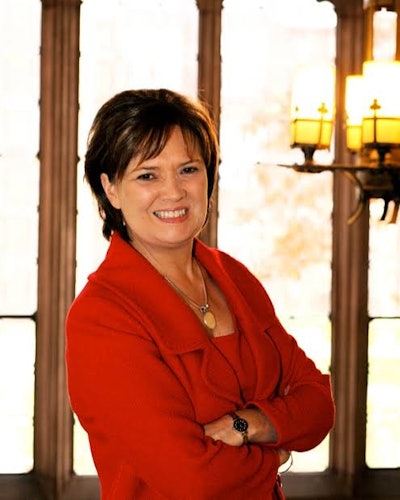When President Joe Biden delivers the State of the Union address from the House rostrum Tuesday, he is expected to discuss the economy, to talk about the war in Ukraine, and to make a case for his re-election. But the world of higher education will be listening carefully for what Biden may say about the many issues America’s colleges and universities are facing, several of which have assumed national prominence in recent months.
How much Biden discusses higher ed and what he chooses to mention will be an important clue to his administration’s priorities for the second half of his term.
“The State of the Union is the president’s chance to address the nation and say, ‘these are the things I care about,’” said Jonathan Fansmith, senior vice president of government relations at the American Council on Education. “Where the president chooses to spend valuable, limited time is a very good indicator of where the administration’s going to put the muscle.” Jon Fansmith
Jon Fansmith
Fansmith is hopeful that Biden will discuss federal financial aid, particularly the possibility of doubling the Pell Grant. He also says he believes Biden will bring up the student loan forgiveness program, now before the U.S. Supreme Court, to indicate that his administration will not give up on relief for student borrowers.
“It means that regardless of what the Supreme Court does, they’re going to try and push forward in different ways,” said Fansmith. “The court might limit the ways in which they do it, but it may not stop them from trying to go at it by other means.”
Other experts will be looking for Biden to address the battles over the higher ed culture wars that have raged for the past year, particularly in Florida, where Gov. Ron DeSantis has cracked down on critical race theory, tenure practices, and DEI initiatives.
“My hope is that President Biden will focus on the urgent crisis in American higher education and democracy that’s a result of the unprecedented legislative overreach into what gets taught and who teaches it,” said Dr. Lynn Pasquerella, president of the American Association of Colleges and Universities. [The laws are] targeting the free exchange of ideas, which is fundamental to the strength of American higher education and America’s historic mission of educating for democracy.”
Addressing such controversial issues is a delicate balancing act for Biden.
“I hope that the tone will be bipartisan in terms of reaching out to those whose views are different,” Pasquerella said. “I don’t want him to come out and condemn everything that Gov. DeSantis is doing in a way that stigmatizes those who are genuinely concerned about parental rights or who care about teaching history the way that they learned it.”
Instead, Pasquerella believes that an appeal to shared values could succeed.
“I think here’s an opportunity to say, look at what our nation was built on,” she said. “The founding fathers wanted an education that was fit for America, and they pushed back against the kind of classical education they received and invented a new system that is unique in the world. In this era where emotion seems to matter more than argumentation, there is an opportunity to create a kind of kinship.”
 Dr. Lynn Pasquerella
Dr. Lynn Pasquerella
“When community colleges are mentioned in the State of the Union address, it elevates our sector across policy circles,” said Dr. Walter G. Bumphus, president and CEO of the American Association of Community Colleges, by email. “Knowing it is a priority for the president of the United States will help us to continue [our] work.”
Fansmith says he is curious to see whether Biden brings up free community college.
“This was obviously a proposal they were pushing pretty hard a couple years ago, but we haven’t heard a lot about it recently,” said Fansmith. “Finding out if that is still a priority of the administration would be interesting.”
Dr. Kenneth K. Wong, director of the Urban Education Policy program at Brown University’s Watson Institute for International and Public Affairs, said he thought that tying higher education to the labor market might be a strategy Biden could use to curry bipartisan support. Wong also said calls to make investments to keep American higher education No. 1 in the world and to re-authorize the Higher Education Act might attract interest from both sides of the aisle.
There’s also a reasonable chance that HBCUs and other MSIs may come up, according to Dr. Rebecca Natow, assistant professor of educational leadership and policy at Hofstra University.
“Federal support for HBCUs and MSIs has traditionally been something that’s received bipartisan support,” she said. [It’s] something [Biden] will want to draw attention to going into the 2024 campaign season.”
Dr. Mildred García, president of the American Association of State Colleges and Universities, hoped that Biden would call on Congress to increase funding for the College Completion Fund for Postsecondary Success, which helps historically Black, tribal, and other minority-serving higher ed institutions increase retention and completion. García said the funding was critical to help re-engage students who had stopped out during the COVID-19 pandemic.
It’s not clear, however, how specific the president’s proposals will be. The State of the Union often features sweeping promises that lack specifics. But higher ed policy stakeholders will be paying close attention to what Biden chooses to mention — and to omit.
“While it can be a bit performative,” said Fansmith, “it is also a very clear indicator of where the administration wants to work. That’s really, really important for people who have real issues we’re trying to advance.”
Jon Edelman can be reached at [email protected].















